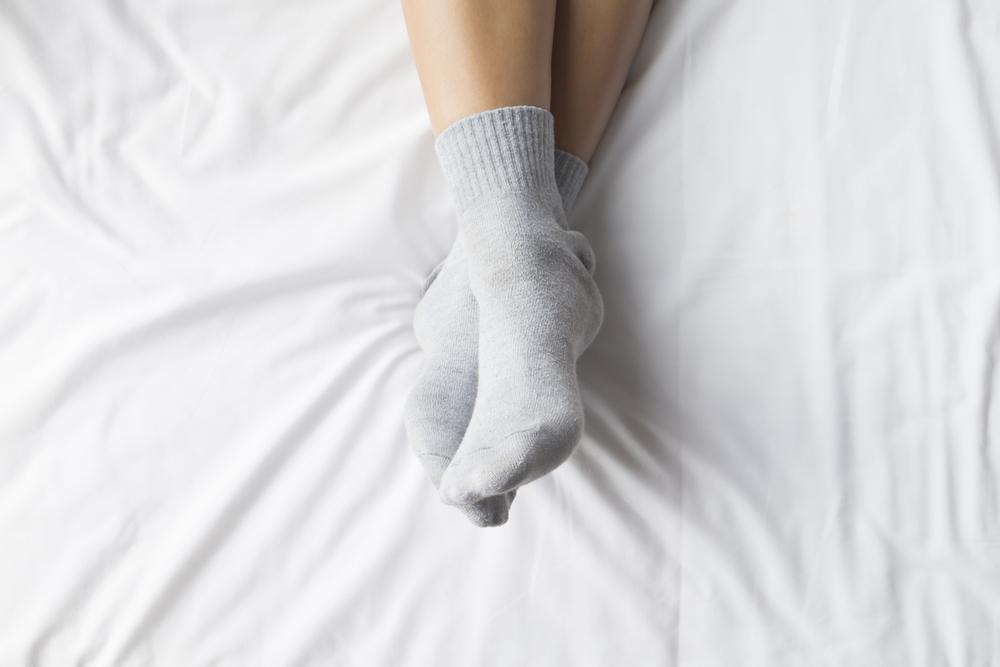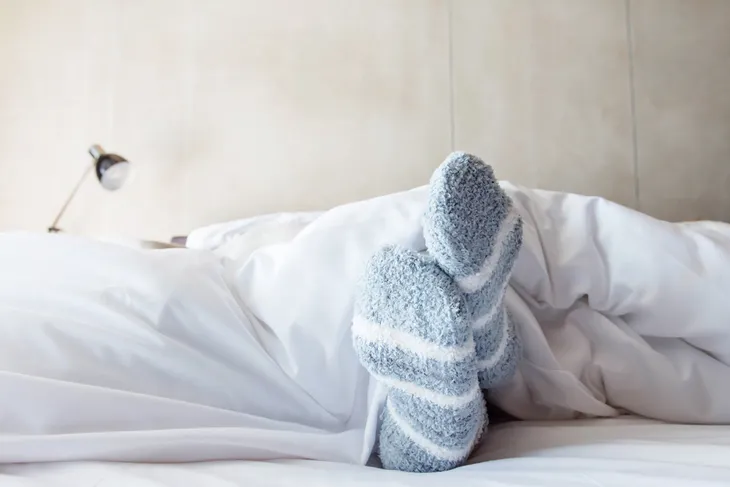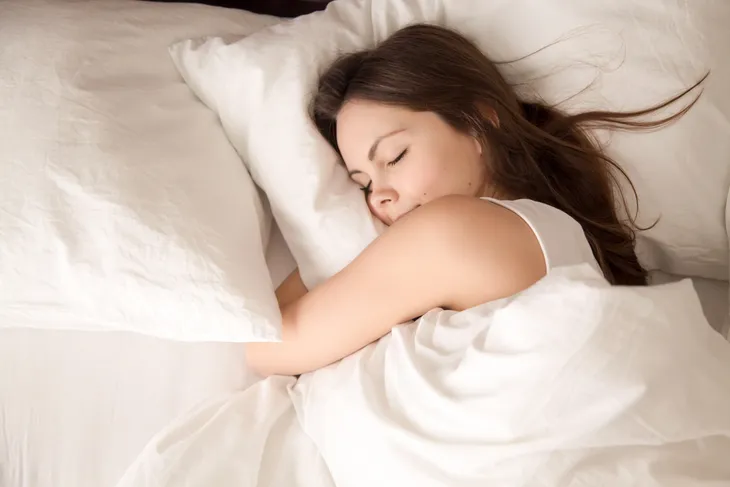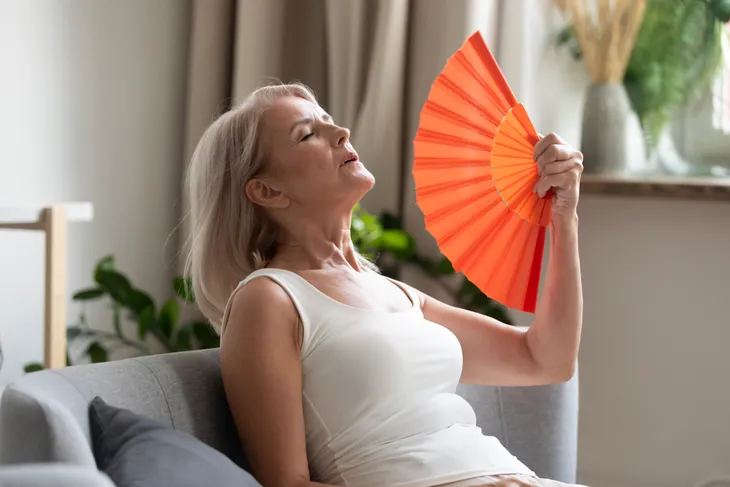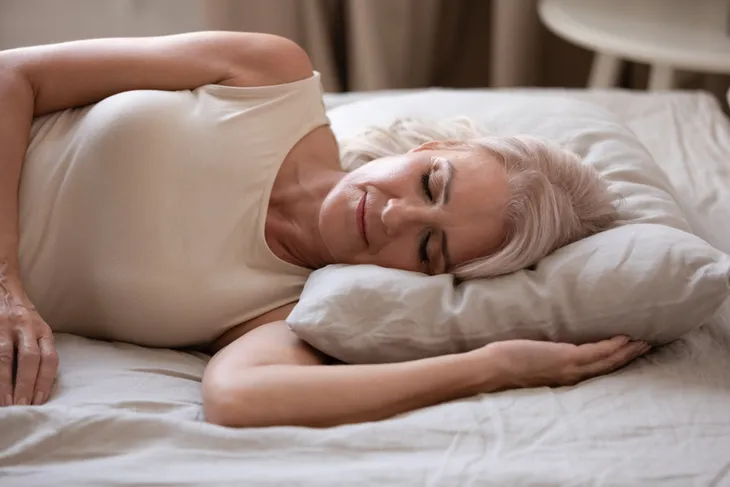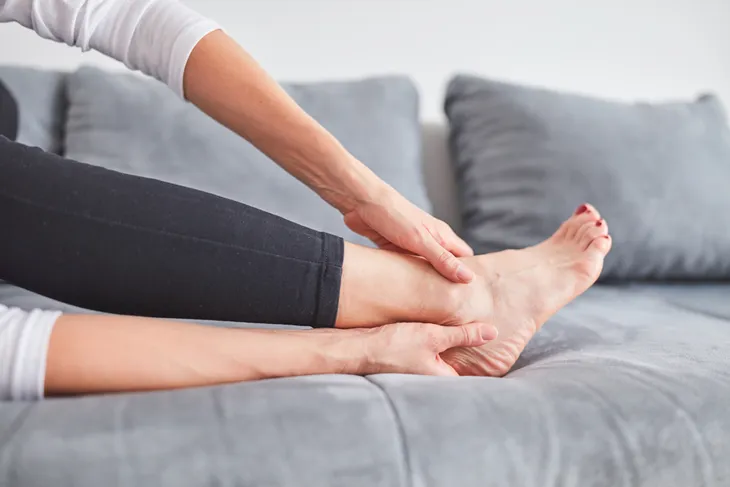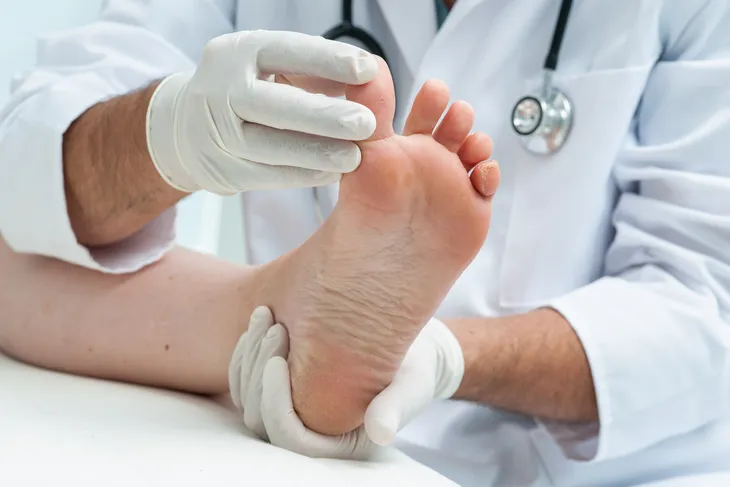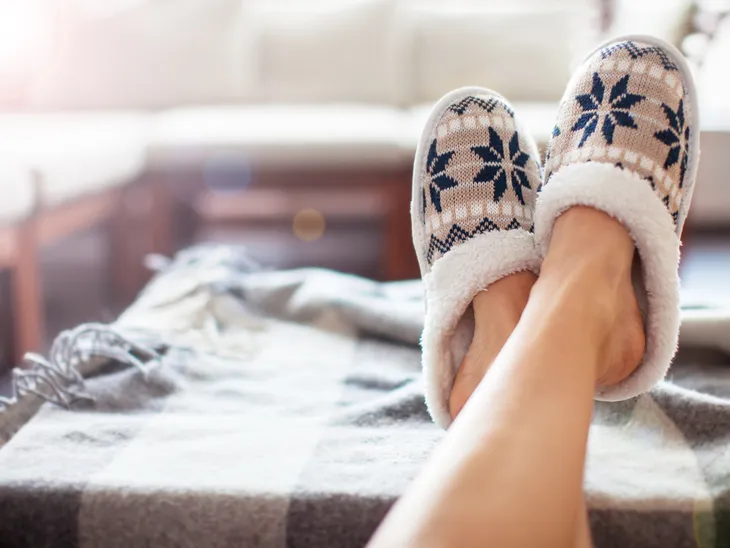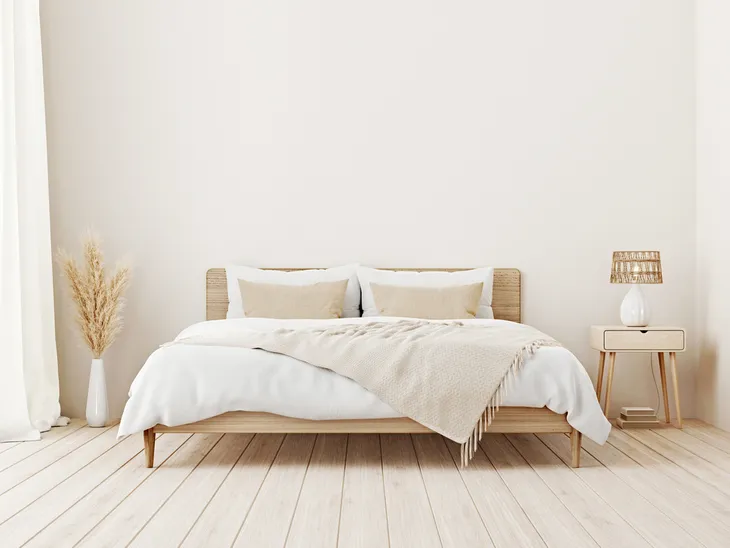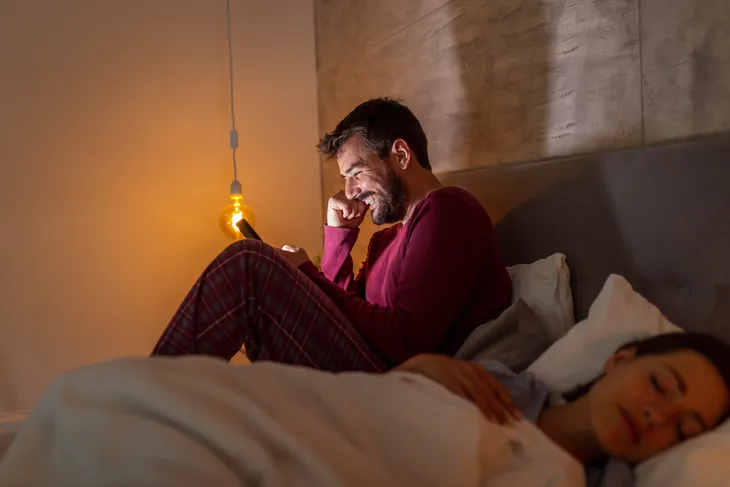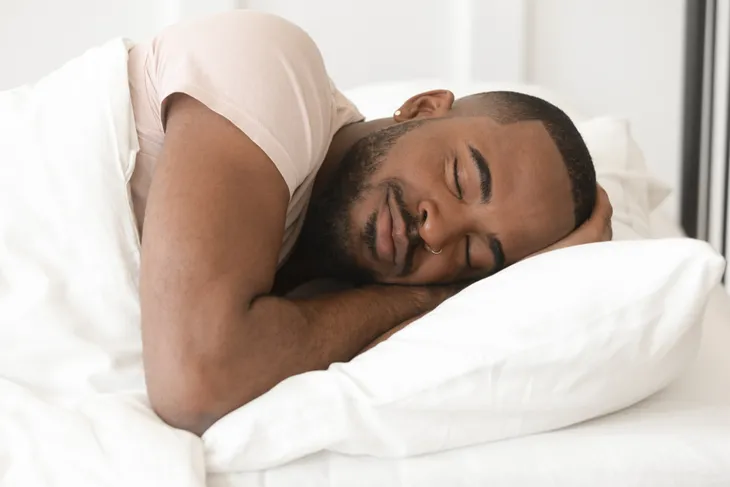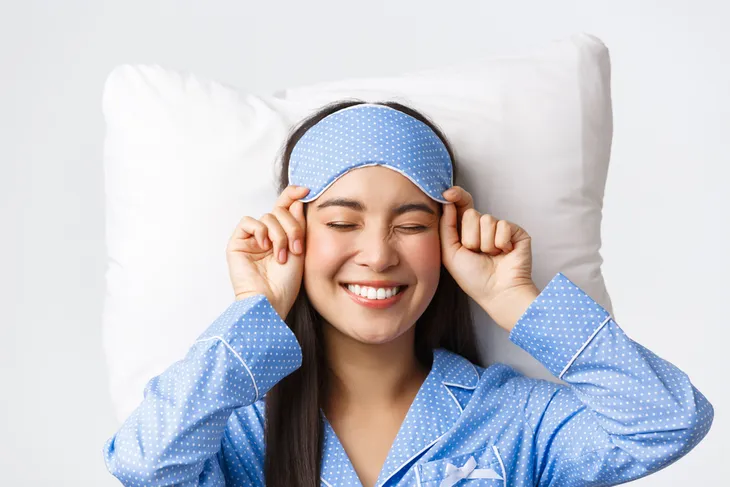The world can be split into two types of people — those who like to sleep with socks on and those who absolutely despise it. According to Apartment Therapy, about 28-percent of people in the U.S. love the idea of wearing socks to bed. As it turns out, that group is reaping some worthwhile health benefits the other 72-percent are missing out on.
If you’re looking for ways to boost your health, then sock therapy could be the answer. Here are some ways that wearing socks to bed can help with more than just keeping your feet warm.
Fall Asleep Faster
Your body can have a hard time falling asleep when the feet are cold. That’s one of the big reasons why Medical News Today recommends wearing socks to bed. In fact, studies show that adults who wear normal or heated socks in bed tend to fall asleep faster.
When you wear socks, it allows the blood vessels to dilate and release heat through the skin. This bodily function is called vasodilation. Research suggests that vasodilation in the hands and feet can make you fall asleep faster. It basically sends a signal to your brain that it’s time to sleep by lowering your core body temperature.
Your Body Temperature Changes
The body changes its temperature based on its circadian rhythm. This daily pattern helps your body know when it’s time to sleep or wake up. To regulate your body’s internal clock, your temperature rises when you’re awake and decreases 1 or 2-degrees when you begin to fall asleep.
Some research shows that warm skin is associated with falling asleep more quickly by helping your temperature regulation cycle. So if you’re spending too much time staring at the ceiling instead of drifting off to sleep, then make sure to grab some socks next time.
Prevent Hot Flashes
Aside from falling asleep faster, wearing socks to bed has other health benefits as well. One of those benefits is preventing hot flashes. It’s something the Cleveland Clinic says three in four women experience during the perimenopausal stage
Hot flashes are when you feel overwhelmed by heat out of nowhere that makes you sweat, turn red, and speed up your heartbeat. You may also experience chills afterward if this happens at night.
How Socks Prevent Hot Flashes
While it might seem counterintuitive to put on more layers to prevent hot flashes, it’s highly recommended. The Sleep Foundation says menopausal flashes occur when there is an increase in core body temperature. This can happen at night or during the day.
When you wear socks to bed, it can help the body decrease your core body temperature. This can hopefully lower your chances of experiencing hot flashes in the middle of the night. Just keep in mind other things can lead to hot flashes, such as hormones. Wearing socks is an easy preventive method to try out.
May Improve Symptoms of Insomnia
Sleeping with socks on may not help every sleep-wake disorder but if you suffer from insomnia, socks may help improve your symptoms. Individuals may even see improvements simply by warming their feet 20-minutes before bed.
The Sleep Foundation also says a separate study showed individuals suffering from insomnia saw improvements by warming their hands and feet. Although it’s worth noting, age may play a role in the efficacy of warming the feet before sleep. Some research suggests that elderly patients with insomnia don’t experience any changes in their symptoms after warming their feet.
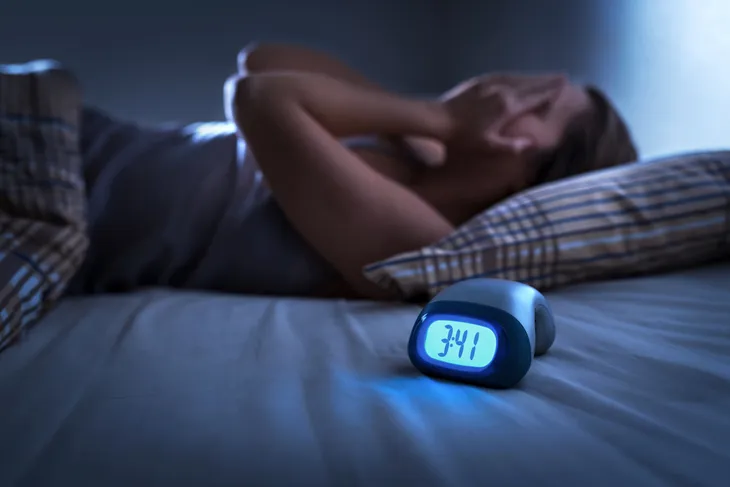 Tero Vesalainen / Shutterstock
Tero Vesalainen / ShutterstockTreating Cracked Feet
Dry and cracked feet happen for a variety of reasons. Some people may deal with chronic psoriasis or eczema, which can also appear on other parts of the body. Others may have to deal with it seasonally in the wintertime when there is less humidity in the air. To repair your feet, wear socks to bed.
An article published by NBC News says to wear socks made of natural materials such as cotton or wool. Before putting the socks on, rub some Vaseline or moisturizer onto your feet. The socks will lock in that moisture while you sleep and improve the condition of your feet.
Who Shouldn’t Sleep With Socks?
While sleeping with socks can benefit many individuals, it may not be suited for some. For example, the Sleep Foundation notes, if you have circulatory issues, swelling of the feet, or any other issues that could increase the likelihood of socks restricting blood flow to your legs and feet then you shouldn’t sleep with socks on.
People who have mobility issues may find socks too slippery. This can lead to falls. Wearing socks with grips on the bottom can help prevent slipping.
If you’re not certain if wearing socks to bed is safe for you, speak with your doctor.
Alternative to Socks
If you really can’t tolerate wearing socks in bed, there might be alternatives that can help you reap similar health benefits. The National Sleep Foundation says to try wearing some warm comfortable slippers before you go to bed. It can prepare your body for sleep and hopefully kickstart your circadian rhythm.
Another recommendation is to layer blankets on top of your comforter at the body of the bedspread. Although you aren’t wrapping your feet up directly, the layered warmth overtop could provide the same effects.
Invest in Sleeping Gear for Your Feet
Rather than wearing socks all night, you could purchase a heating pad to warm up your feet before going to bed. This might eliminate the need for socks or layering extra blankets in bed. A hot water bottle is another cheap product available at drugstores that can achieve a similar effect.
Consider investing in more luxury sleepwear, such as cashmere socks. Its smooth and light materials may give you a more comfortable experience compared to your regular socks. This high-end purchase could be the thing that convinces you to be a sock sleeper. Plus, you can buy a pair for less than $30.
Change the Temperature in Your Bedroom
Unfortunately, wearing a pair of socks to bed won’t be a cure-all for everyone wanting to sleep better. That’s why you might want to try wearing socks in combination with other methods. For example, change up the temperature in your bedroom.
Healthline says the quality of your sleep can decline if the temperature is too high. Similar to your body’s internal temperature, a room that is too hot can increase wakefulness. Try setting the temperature to around 70°F (20°C) in your bedroom.
Be Wary of Your Electronics
Another habit that can mess up your circadian rhythm is using technology before bed. Healthline explains how the blue light it emits can trick your brain into thinking it’s daytime, therefore making it more difficult to fall asleep.
Blue light can reduce hormones, such as melatonin, that help you relax and fall asleep. To limit the exposure, try putting away your cell phones, laptops, and other devices 1 to 2-hours before bedtime. You can also try wearing glasses that block the blue light emitted from your computer or television.
Other Ways to Sleep Better
There are plenty of things you can do to improve your sleep. With some easy lifestyle changes and forming new habits, you can set yourself up for success at bedtime.
Here are some more methods to help you sleep better:
- Don’t drink coffee less than 6-hours before bedtime.
- Avoid irregular or long naps during the day.
- Purchase a high-quality mattress and bedding every 5 to 8-years.
- Eliminate external light to keep your bedroom dark.
- Try going to bed and waking up at the same time each day.
- Don’t eat a large meal before bed.
Why Sleep Is So Important
It’s easy to underestimate the power of sleep, but the fact is, it’s incredibly important for your overall health. Healthline says, “In fact, it’s just as important as eating healthy and exercising.”
Getting good quality sleep may help you lose weight, or manage a healthy weight, improve concentration and productivity, improve your immune function, and may decrease your risks of certain diseases such as heart disease and stroke. If you’re constantly tired and can’t seem to get a good night’s rest, talk to your doctor to find out if there’s an underlying cause.
